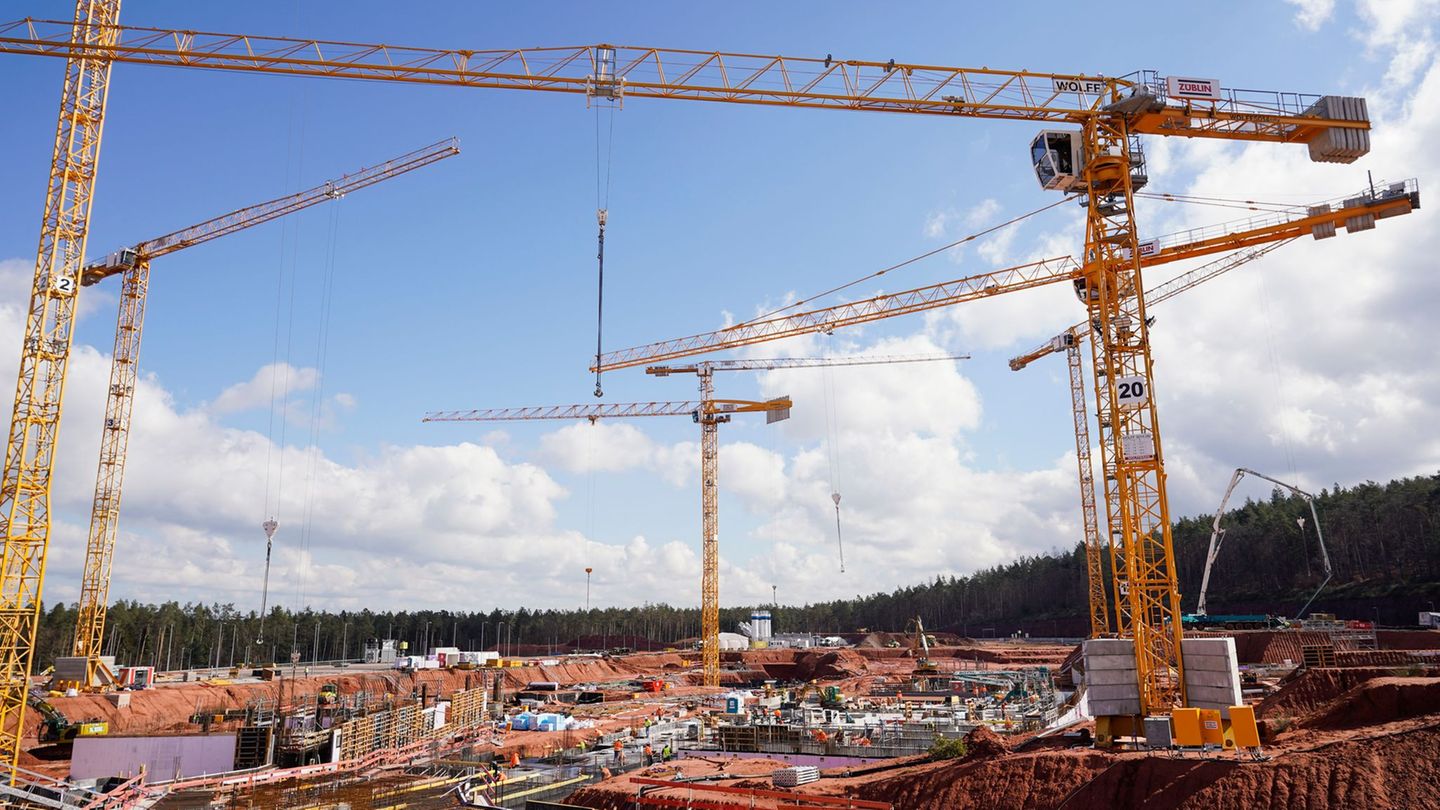Customs hospital
Concrete alliance loyalty
Copy the current link
Add to the memorial list
The largest US military hospital outside the United States is being built near the Ramstein base. In difficult transatlantic times, the clinic is also a strategic commitment.
The German-American relationship was better. Whether trade issues or geopolitics – the list of friction points is long. And yet there are places where the partnership seems unshakable. Weilerbach in Rhineland-Palatinate is such a place. Between the forest and fields, the USA is building the largest military hospital outside the United States – and an important component in the transatlantic relationship structure.
Why is it a construction site of superlatives?
Lush 47 hectares measures the area on which 4,680 rooms and 120 treatment rooms once find space. An infrastructure like a small town. Around 2,500 people will work here. The costs: about $ 1.59 billion (around EUR 1.46 billion), of which Germany pays proportionate planning costs of 266 million euros. The hospital not only serves around 50,000 US military people and their families in the region. It should also ensure the supply of around 200,000 soldiers in missions and in the active service in Europe, the Middle East and Africa.
What does the project mean politically?
This Friday, the Rhineland-Palatinate Prime Minister Alexander Schweitzer (SPD) visits the construction site. It is more than a compulsory date: the clinic is considered a strategic commitment – the presence of American troops in Europe and the role of the federal state as a security policy bridgehead.
“The US government’s investments are an important sign of continuity,” says David Sirakov, political scientist and head of the Atlantic Academy of Rhineland-Palatinate. The project sends a clear signal: Despite all the global tensions, the mutual trust remains, says Sirakov, who advises the state government in relationships with the United States.
Hadn’t Trump threatened with a deduction of soldiers?
According to the recent information from the European command of the US armed forces, around 78,000 US soldiers are stationed in Europe-including around 37,000 in Germany. US President Donald Trump threatened to reduce in Germany during his first term. However, he recently gave hope to leave the troop strength. A partial deduction would be a consequence for Rhineland-Palatinate. “The economic strength of the US military presence can be quantified per fiscal year to more than two billion US dollars,” says Ramstein’s mayor Ralf Hechler (CDU) about his region.
Why does the state play a key role?
In a few weeks, Prime Minister Schweitzer will travel to the USA with a delegation – hold talks, maintain networks, demonstrate reliability. For Sirakov, the fact that he was looking for the end of the shoulder with the U.S. managers on site. Because Rhineland -Palatinate is more than a host – the state is considered a geopolitical peak.
With the huge Ramstein base, the largest US military community is outside the United States. Among other things, US drone attacks can be controlled by the Air Base with around 8,000 soldiers. And in the Eifel, US atom weapons are to be stored at the Büchel military airport.
What connects Trump with Rhineland-Palatinate?
When Chancellor Friedrich Merz (CDU) recently invited Trump to Germany, he proposed Rhineland-Palatinate. Merz knows the Palatinate from military service. The US President knows them-if at all-from family stories.
His grandparents come from the Palatinate Kallstadt. In the 1,250-soul winer village in the district of Bad Dürkheim, the history of the Trumps took its course in the 19th century-with the emigration to America.
dpa
Source: Stern
I have been working in the news industry for over 6 years, first as a reporter and now as an editor. I have covered politics extensively, and my work has appeared in major newspapers and online news outlets around the world. In addition to my writing, I also contribute regularly to 24 Hours World.




